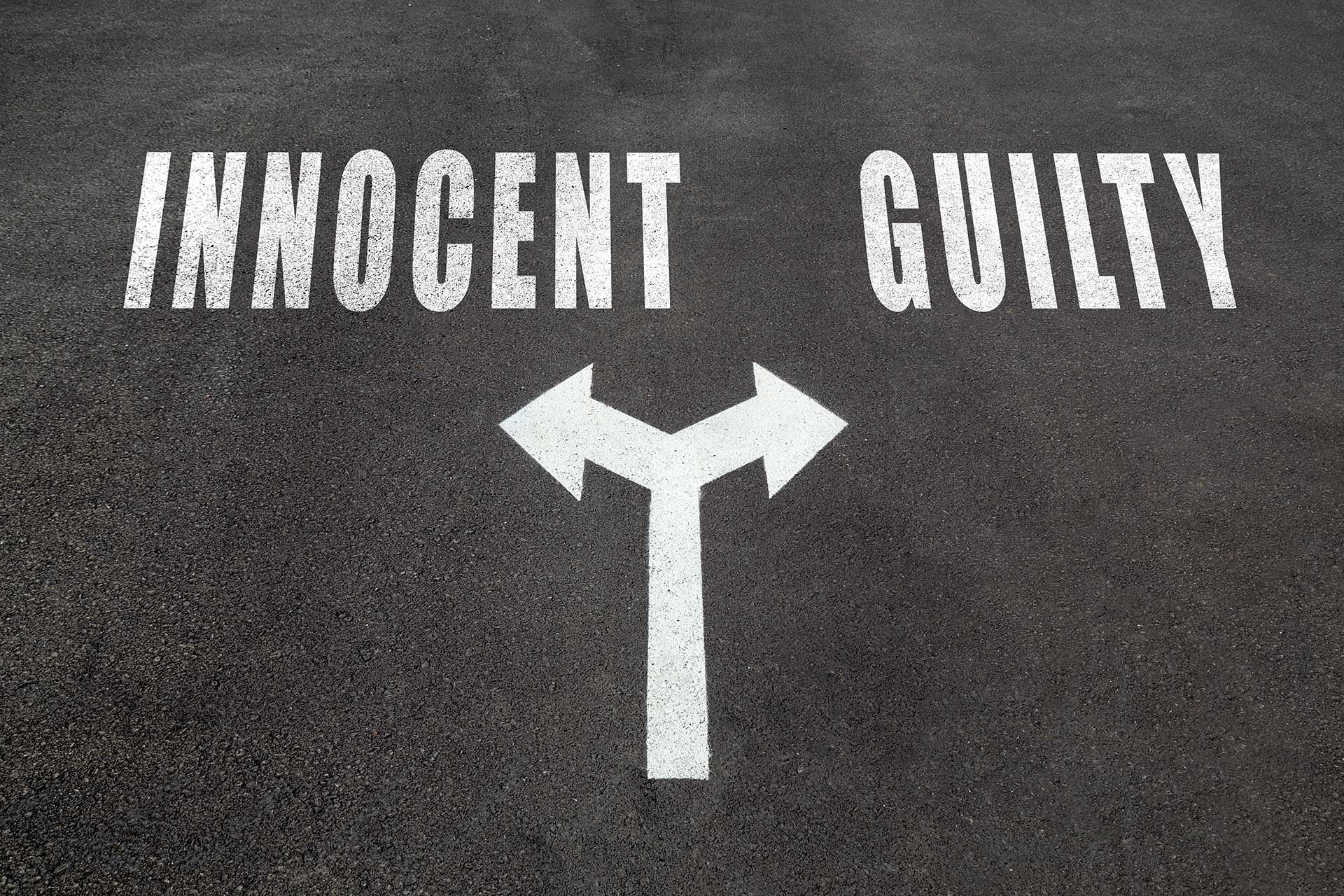DUI lawyers field a lot of questions regarding car stops, testing, and legal proceedings. One of the most common questions these attorneys receive is whether an individual should plead guilty to DUI. Before entering any type of plea, individuals charged with DUI should understand the potential consequences.
Key Takeaways:
- Understanding the implications of pleading guilty to a DUI charge is crucial.
- Knowing your options and seeking professional advice can help you make an informed decision.
- DUI Rights offers a free DUI arrest evaluation to assess your case.
- They can also help you find a qualified DUI defense attorney.

Pleading guilty
Entering a guilty plea for a DUI charge usually involves waiving all constitutional rights regarding the case. These include waiving the right to a trial by jury. The document on which an individual does this typically outlines the potential consequences. In some jurisdictions, a judge will review the form in an open court session to ensure that individuals do not later claim to be uninformed regarding their rights.
Pleading guilty immediately results in a DUI conviction and it is very difficult to withdraw this plea. The individual should review the case with an experienced DUI rights lawyer to ensure that pleading guilty is the best decision. DUIRights.com offers free evaluations from reputable attorneys specializing in DUI cases. Going this route ensures that there are no surprise penalties.
Why You Should Not Plead Guilty to a DUI
Many people facing a DUI charge may feel overwhelmed and decide to simply plead guilty in order to resolve the matter quickly. However, this is not always the best option, and there are several reasons why you should not plead guilty to a DUI.
Lack of Evidence
In some cases, the evidence against you may not be strong enough to support a conviction. The prosecution must prove beyond a reasonable doubt that you were driving under the influence, and this can be difficult to do if there are inconsistencies in the evidence or if the breathalyzer results are unreliable. Before pleading guilty, it’s important to understand the strengths and weaknesses of the case against you and to consult with a DUI defense attorney to assess your options.
Potential for a Better Outcome
If you plead guilty to a DUI, you will likely face a conviction, which can have serious consequences, including a criminal record, higher insurance rates, and difficulty finding employment. By fighting the DUI charge, you may be able to negotiate a better outcome, such as reduced charges, probation instead of jail time, or even a dismissal of the case. A skilled DUI attorney can work with the prosecution to negotiate a plea bargain or to challenge the evidence in court.
Mitigating Circumstances
In some cases, there may be mitigating circumstances that can be used to your advantage in court. For example, if you were driving under the influence due to a medical condition or because you were taking medication prescribed by a doctor, this can be used as a defense. An experienced DUI attorney can help you identify any mitigating circumstances and present them in court to help reduce the consequences of a DUI conviction.
Pleading guilty to a DUI is not always the best option. Before making a decision, it’s important to understand the evidence against you, to consider the potential consequences of a conviction, and to consult with a DUI rights defense attorney. With the right legal representation, you may be able to negotiate a better outcome and avoid the severe consequences of a DUI conviction.
Should I Plead Guilty to DUI?
Deciding whether to plead guilty to a DUI charge is a significant decision that should be carefully considered. It is crucial to weigh the potential consequences and evaluate your options before making a choice. Understanding the facts of your case, the evidence against you, and the potential penalties can help you make an informed decision. Seeking professional advice from a DUI defense attorney can provide valuable insight into your specific situation.
Is Pleading Guilty My Best Option? Weighing the Alternatives
When facing a DUI charge, it may initially appear that pleading guilty is the simplest path to take. However, it’s essential to carefully consider the alternatives before making your decision. Options such as negotiating a plea deal or challenging the charges in court can provide alternative paths with their own advantages and drawbacks.
Weighing the Alternatives:
- Negotiating a plea deal: By working with the prosecutor, you may be able to reach a mutually agreeable resolution that can lead to reduced charges or penalties. This can help minimize the long-term impact of a DUI conviction.
- Fighting the charges in court: If you believe you have a strong defense, taking your case to trial may be an option. This can give you the opportunity to challenge the evidence and arguments against you, potentially leading to a favorable outcome.
Each alternative should be evaluated based on the unique circumstances of your case. Factors such as the strength of the evidence against you, your criminal history, and the potential consequences of a guilty plea need to be carefully considered. Seeking professional advice from a DUI defense attorney is crucial during this decision-making process.
It’s important to remember that every DUI case is unique, and what may be the best option for one individual may not be the same for another. Consulting with a knowledgeable attorney can provide valuable insights and help guide you towards the best course of action.
Evaluating DUI Plea Options
DUI Plea Bargaining: A Primer
Plea bargaining is a common practice in DUI cases. It involves negotiating with the prosecutor to reach a mutually agreeable resolution without going to trial. Understanding the process and potential outcomes of plea bargaining is essential when evaluating your options.
Pros and Cons of DUI Plea Deals
When considering whether to plead guilty to a DUI charge, it’s important to carefully weigh the pros and cons of accepting a plea deal.
- Advantages of DUI Plea Deals:
- Reduced Charges or Penalties: A plea deal may offer the opportunity to have charges or penalties reduced, which can result in a lighter sentencing.
- Avoiding a Lengthy Trial: Pleading guilty through a plea deal can help you avoid the stress and uncertainty of a lengthy trial process.
- Minimizing Personal and Professional Impact: Accepting a plea deal may mitigate the negative consequences of a DUI conviction, such as potential damage to your reputation and career.
- Drawbacks of DUI Plea Deals:
- Admitting Guilt: Pleading guilty through a plea deal means accepting responsibility for the DUI offense and admitting guilt.
- DUI Conviction On Your Record: A DUI conviction can have long-term consequences, such as increased insurance rates, difficulty finding employment, and restrictions on international travel.
| Advantages of DUI Plea Deals | Drawbacks of DUI Plea Deals |
|---|---|
| Reduced Charges or Penalties | Admitting Guilt |
| Avoiding a Lengthy Trial | DUI Conviction On Your Record |
| Minimizing Personal and Professional Impact |
Understanding the Consequences of a DUI Conviction
Legal Implications of Pleading Guilty to DUI
Pleading guilty to a DUI offense can have serious legal consequences. It’s important to be aware of the potential outcomes before making a decision.
- Fines: A DUI conviction often results in substantial fines that can put a significant financial strain on you.
- License Suspension: Pleading guilty to DUI may lead to the suspension of your driver’s license, making it difficult to commute and fulfill daily obligations.
- Mandatory Alcohol Education Programs: Depending on the jurisdiction, you may be required to attend alcohol education programs to address any underlying issues related to your DUI.
- Probation: Pleading guilty to a DUI offense may result in probation, where you are required to follow certain conditions set by the court and regularly check in with a probation officer.
- Jail Time: In some cases, a DUI conviction can lead to imprisonment, especially if it is a repeat offense or if the circumstances of the DUI involve aggravating factors such as accidents or injuries.
DUI Guilty Plea Consequences: A Comprehensive Overview
A comprehensive overview of the consequences of pleading guilty to a DUI can help you understand the potential impact on your life.
- Increased Insurance Premiums: Pleading guilty to a DUI can lead to significantly higher insurance premiums, making it more expensive to maintain coverage.
- Difficulty Finding Employment: A DUI conviction can adversely affect your employment prospects, as it may appear on background checks and impact your reputation in the eyes of potential employers.
- Limitations on International Travel: Some countries have strict entry requirements for individuals with a DUI conviction, which may limit your ability to travel internationally.
Before deciding to plead guilty, it is essential to consider both the immediate and long-term consequences, consult with a qualified DUI defense attorney, and explore all available options.
Seeking Professional DUI Plea Advice
When facing a DUI charge, it is crucial to seek professional counsel to guide you through the complexities of the legal process. The importance of professional advice cannot be overstated when making decisions regarding your DUI plea. DUI defense attorneys possess the expertise and knowledge of DUI laws necessary to provide tailored guidance and support in your case.
The Importance of Professional Counsel in DUI Cases
Seeking advice from a DUI defense attorney is essential for understanding the specific nuances of your case and the potential legal implications of pleading guilty. With access to extensive resources and a deep understanding of DUI laws, these attorneys can analyze the evidence against you and help you make informed decisions.
DUI defense attorneys play a crucial role in safeguarding your rights and advocating for the best possible outcome in your case. Their knowledge and experience can significantly impact the trajectory of your case, potentially leading to a reduction in charges or a more favorable plea deal.
How DUI Defense Attorneys Can Help Negotiate a Better Outcome
One of the key ways DUI defense attorneys assist in DUI cases is by negotiating with the prosecutor on your behalf. They meticulously evaluate the evidence against you, looking for potential weaknesses in the prosecution’s case. Armed with this information, they engage in negotiations to secure a favorable plea deal or reduction in charges.
By leveraging their expertise and understanding of the legal system, DUI defense attorneys can work towards achieving a better outcome for your case. They strive to minimize the negative consequences of a DUI conviction, such as fines, license suspension, and potential jail time.
| Benefits of Seeking Professional DUI Plea Advice | How DUI Defense Attorneys Help Negotiate a Better Outcome |
|---|---|
| Access to expert legal advice Understanding of specific DUI laws Assessment of evidence against you Guidance for making informed decisions Protection of your rights | Thorough evaluation of evidence Identification of weaknesses in the prosecution’s case Negotiation for a favorable plea deal Reduction in charges Minimization of potential penalties |
How to Prepare for DUI Plea Negotiations
Gathering Necessary Documentation and Evidence
Before entering plea negotiations, it is important to gather all relevant documentation and evidence to support your case. Gathering necessary documentation and evidence can strengthen your position during negotiations. Some key documents and evidence to consider include:
- Police reports
- Breathalyzer test results
- Witness statements
- Any other information that may support your case
By collecting these documents and evidence, you can present a more compelling case during plea negotiations and potentially improve the outcome.
Strategies for Successful DUI Plea Negotiation
Effective strategies for DUI plea negotiation involve thorough preparation, clear communication, and presenting a compelling case. Here are some strategies that can help you achieve a successful plea negotiation:
- Highlight mitigating factors: Emphasize any factors that may reduce your culpability or provide grounds for leniency, such as a clean prior record, completion of a defensive driving course, or participation in a rehabilitation program.
- Demonstrate commitment to rehabilitation: Express your willingness to take corrective actions, such as attending alcohol education programs or undergoing treatment, to address any underlying issues and prevent future offenses.
- Challenge the validity of evidence: If there are weaknesses or inconsistencies in the evidence against you, your attorney can challenge its credibility or provide alternative interpretations that cast doubt on your guilt.
- Communicate effectively: Clearly and respectfully convey your perspective and goals during negotiations. Listen carefully to the prosecutor’s arguments and offer rational counterarguments supported by the facts of your case.
- Stay open to negotiation: Be flexible and willing to explore alternative solutions that may be mutually beneficial, such as accepting reduced charges or penalties in exchange for certain concessions.
Working closely with your DUI defense attorney throughout the plea negotiation process can help you develop a tailored strategy that maximizes your chances of achieving a successful outcome.
Conclusion
When facing a DUI charge, it’s crucial to make informed decisions that can have a significant impact on your future. That’s where DUI Rights comes in. With their extensive experience and knowledge in DUI defense, they can guide you through the process and connect you with a qualified DUI defense attorney who will work tirelessly to protect your rights.
Taking the Next Step with DUI Rights
By partnering with DUI Rights, you’re taking a proactive approach to your DUI defense. Their team can analyze your case, provide personalized advice, and connect you with a skilled DUI defense attorney who will fight for the best possible outcome. Remember, you don’t have to face this alone. DUI Rights is here to help.
FAQ
Should I Plead Guilty to DUI?
Deciding whether to plead guilty to a DUI charge is a significant decision that should be carefully considered. It is crucial to weigh the potential consequences and evaluate your options before making a choice. Understanding the facts of your case, the evidence against you, and the potential penalties can help you make an informed decision. Seeking professional advice from a DUI defense attorney can provide valuable insight into your specific situation.
Is Pleading Guilty My Best Option? Weighing the Alternatives
While pleading guilty may seem like the simplest option, it may not always be the best choice. There are alternatives to consider, such as negotiating a plea deal or fighting the charges in court. Each option has its own set of advantages and drawbacks, depending on the circumstances of your case. Weighing the alternatives and seeking professional advice can help you determine the best course of action for your situation.
What are the DUI Plea Bargaining options?
Plea bargaining is a common practice in DUI cases. It involves negotiating with the prosecutor to reach a mutually agreeable resolution without going to trial. Understanding the process and potential outcomes of plea bargaining is essential when evaluating your options.
What are the Pros and Cons of DUI Plea Deals?
Plea deals can offer advantages such as reduced charges or penalties, avoiding a lengthy trial, and minimizing the impact on your personal and professional life. However, there are also potential drawbacks, including admitting guilt and having a DUI conviction on your record. It’s important to carefully consider the pros and cons before deciding on a plea deal.
What are the Legal Implications of Pleading Guilty to DUI?
Pleading guilty to a DUI offense can have serious legal consequences. These may include fines, license suspension, mandatory alcohol education programs, probation, and even jail time. It’s crucial to understand the potential legal implications before making a decision.
How can DUI Defense Attorneys Help in Negotiating a Better Outcome?
DUI defense attorneys work diligently to protect your rights and advocate for the best possible outcome. They can evaluate the evidence against you, identify potential weaknesses in the prosecution’s case, and negotiate with the prosecutor to secure a favorable plea deal or reduction in charges.
How can I Prepare for DUI Plea Negotiations?
Before entering plea negotiations, it is important to gather all relevant documentation and evidence, such as police reports, breathalyzer test results, witness statements, and any other information that may support your case. This preparation can strengthen your position during negotiations. Effective strategies for plea negotiation involve thorough preparation, clear communication, and presenting a compelling case. Working closely with your DUI defense attorney can help you develop a successful negotiation strategy.
How can I Get Immediate Assistance from DUI Rights LLC?
If you need further assistance or have specific questions regarding your DUI case, DUI Rights LLC is available to help. Their experienced team can provide guidance and connect you with a qualified DUI defense attorney who can work diligently to protect your rights and secure the best possible outcome for your case. For immediate assistance, visit the DUI Rights LLC website at www.duirights.com or call 877.448.3381.
DUIRights Support is comprised of legal writers and attorneys who are able to generate useful information about issues relating to DUI. Please use all information at your own discretion and never use the information as legal advice without consulting with an attorney.






This my second dui and i blew a 0.13 should i plea.
You should have a DUI lawyer get the charges reduced. If there is enough evidence showing your intoxication then yes take a plea. BUT make sure your lawyer is checking everything for discrepancies before taking a plea bargain.
Officers dont have video showing probable cause. Isnt this imperative?
Yes your lawyer can argue this in court. The police need to have probable cause. What was the outcome of your case?